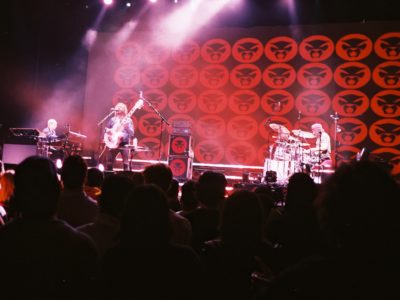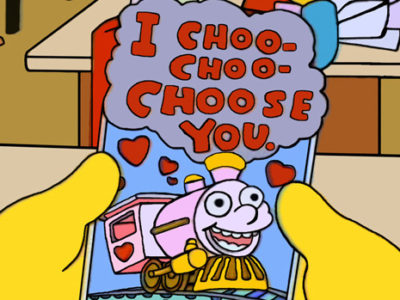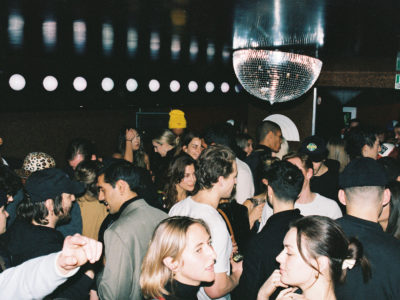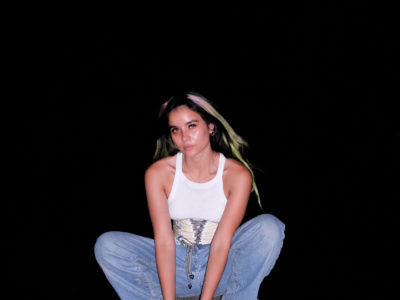Music’s True Players
Music’s True Players
WORDS BY: ARIELA KOZIN | FEATURED + LEAD PHOTO BY: TAYLOR RAINBOLT
The music you hear isn’t only thanks to the musician’s hard work. An entire team of creatives and business brains are behind the best beats that pour out of your headphones.
Who are the experts responsible for introducing you to your favorite new artists? Meet a manager, a music supervisor, and a songwriter—all equally important, yet drastically different roles in an ultra-competitive, ever-evolving industry. While each of their come-up stories are unique, they are all young, love the art, and know that the hustle never stops.
Taylor Hass
The Artist Manager
Wet and Empress Of have talent and it is Taylor Hass who makes sure that talent is best showcased. Whether it be creative or business, Taylor is the point-person for all the behind the scenes goodness. She is her bands’ secret weapon.

Born in: Needham, Massachusetts
What’s a music manager?
It’s a lot, but essentially what we do as managers is take an artist’s vision and push it through the right channels—to the right people and through the right outlets to get the right audience, It’s partially artist-facing and partially industry-facing to create some sort of tangible representation of their art. We figure out the best ways to communicate the artist’s art to the world.
How did you become a manager?
In all honesty, I didn’t know what I wanted to do. I grew up dancing, so that was what initially got me into music. When I moved to New York, I just started going to a lot of shows and met a lot of artists. When I was trying to figure out what I wanted to do, music felt obvious. After a lot of internships and working for free for a long time, I got a job at an agency doing PR. Then I found a band on Bandcamp, met with them, started helping them, and it eventually lead into managing them. I think I saw a little bit of a ceiling with PR and I knew that I wanted to try other things, so it all just came together at the right time—right artist, right opportunity. I did management independently for a while on the side for about a year, then independently, then I moved to LA and joined a company to take on more artists.
What’s your advice to someone just starting out in the music business?
I think a lot of it is about not being afraid. Just because you haven’t done something before, you can figure out how to do it because there’s not really very many rules in this business. There’s a lot of people around that can help and that want to help, so don’t be afraid to ask. If you believe in the art and you surround yourself with the right people, you can make it happen—but it takes time. I worked for free for a long time while waiting tables just to get into the right door, so you have to persevere to a certain amount if you want it enough.
Robert Lowry
The Music Supervisor
Music supervision is where music and film collide. Have you ever discovered new music at the movie theater or on TV? That’s where Rob’s job comes in.

Born in: Philadelphia, Pennsylvania
Can you explain a music supervisor’s role?
On the surface, we’re the ones who select the music you hear in movies and TV shows. Really, it’s everything from working out the budget to hiring a composer and working with that composer. It’s more collaborative than people tend to realize. It’s not as simple as having good taste and plugging in the songs you like. You have to negotiate copyrights and prioritize within a certain budget. Some films and some TV shows hire the composer; working with them in terms of discussing tone or instrumentation, or whatever it may be. On top of it all, its about building great relationships with publishers, bands, and labels to bring it all together.
How did you become a music supervisor?
I started as a production assistant on a couple of NBC primetime shows. That’s when I decided I wanted to go in the direction of music supervision. I made sure everyone in the writer’s office was in the writer’s office and told them I wanted to be a music supervisor; giving them mix CDs, reading scripts and pitching music, and giving editors music.
One of the editors during hiatus was doing a small indie film and I got a music supervisor job on it. I learned creative is maybe 30-40 percent of the job and the rest is a lot of paperwork and legalities, so I had to learn that stuff very quickly. I did that film and that was just a kind of catalyst to building relationships.
What do you love most about your job?
I think it’s finding people that I’m super inspired by and getting to work with them on a collaborative level. I’m most excited by a script or an episode of a film that challenges me to find the best possible music or songs to complement that. Sometimes it can take months to find the right song for a scene, and then you find it, bring it to the director and they’re just as into it as you are—when that clicks, it really does feel like magic.
Hollis Wong-Wear
The Songwriter
Grammy-nominated artist Holly Wong-Wear does it all. As a songwriter, performer, poet, and community advocate, she’s one of the women we’re inspired by daily. From her notorious call-out of the Seattle Times to her performances as the front woman for The Flavr Blue to touring with Macklemore & Ryan Lewis, we’re always waiting to see what Hollis is up to next.

Born in: Petaluma, CA
As a songwriter, performer, activist, and more—how do you balance it all?
I feel balanced when I ground myself within a community of creatives and change makers who remind me that there is a higher purpose to my craft, and whom I can listen to and learn the best way to proceed. Collaboration is key—bringing multiple peoples’ energies and perspectives together in a sustained way energizes me and keeps me fresh. It’s easy to busy and worry myself and bog myself down with an endless to-do list; it’s important to remind myself daily that honing my body of work as an artist is the key to my sustainability, not the all of the seemingly urgent e-mails and micro-details that can consume my capacity. That push and pull between what needs to be done and what should be created can either be overwhelming or catalyzing, and I just try every day to be positive, thankful, present, and as productive as I can be.
How did you get to this point of doing music full time? Was it something that took a long time to come into fruition?
I never was someone who thought they were going to be a full-time working artist—I always figured I’d pursue my creative passions on the side with a “real job”—and my professional path has been extremely organic and not at all plotted out. I started out writing and performing spoken word poetry as a teenager and then founding a rap duo with my BFF Madlines when we were 19 with no intention other than to grow as writers and amplify our voices. I idolized local independent Seattle hip-hop when we started out, and I ended up meeting and then working on an ongoing basis with the artists who inspired me most—not as an artist, but as everything else: music video producer, communications consultant, tour manager. Learning about the management and production side of being an independent artist gave me tactical skills, and also the confidence that I could indeed support myself if I chose to pursue being a working musician.
Now, I feel like I’m living the dream by writing and performing my own music with my band The Flavr Blue as well as writing with and for other artists with top-tier songwriters in LA. But I also have other side project/hustles—whether hosting events or managing a recording studio, Forecast Recordings, in downtown LA—that keep me busy and pay the bills. It’s taken almost a decade to get where I’m at and I’m so thankful that my career has been a steady build. I don’t think I would have had the self-assuredness or grounding if I had been catapulted in my early twenties, myself.
What’s your advice to someone starting out in the industry?
It will take you years and a lot of missteps before you’re excellent at what you do. But starting on day one, you can work as hard as possible to get there, and your ethic is what will define you. Find a cathartic way to deal with the dips and flops as you start out instead of internalizing and harboring self-doubt. Surround yourself with electrifying personalities, and never lose touch with your day one ride or dies. Write every day, even if you’re “not a writer.” Get out of town; don’t forget the world is exponentially greater than that which we know. Be as nice as possible to those you don’t know and as generous as possible with those you trust. Remember not to take anything personally, especially if someone intends you to do so. Just continue to gravitate towards the good energy that reminds you why you decided to enter into the incredibly unpredictable creative industries instead of doing something way more practical, stable, and generally well-paying!





